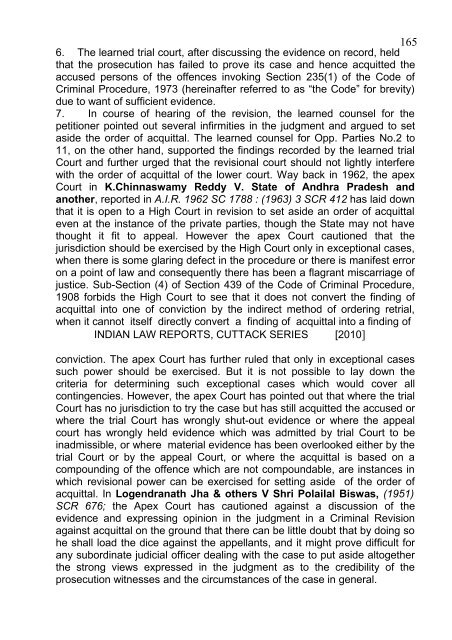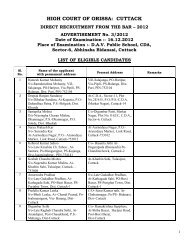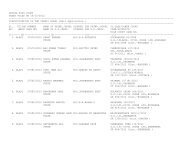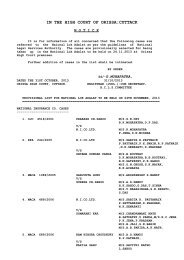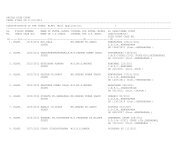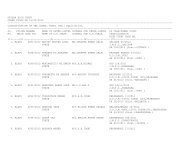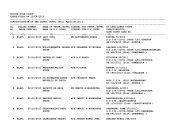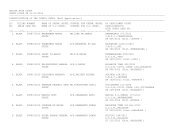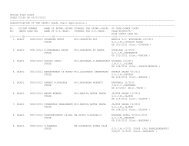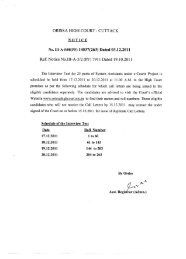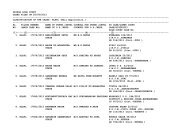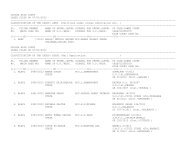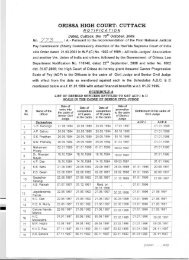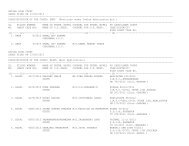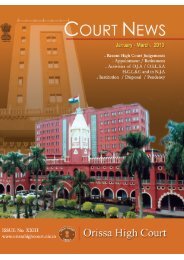ORIGINAL JURISDICTION - Orissa High Court
ORIGINAL JURISDICTION - Orissa High Court
ORIGINAL JURISDICTION - Orissa High Court
Create successful ePaper yourself
Turn your PDF publications into a flip-book with our unique Google optimized e-Paper software.
165<br />
6. The learned trial court, after discussing the evidence on record, held<br />
that the prosecution has failed to prove its case and hence acquitted the<br />
accused persons of the offences invoking Section 235(1) of the Code of<br />
Criminal Procedure, 1973 (hereinafter referred to as “the Code” for brevity)<br />
due to want of sufficient evidence.<br />
7. In course of hearing of the revision, the learned counsel for the<br />
petitioner pointed out several infirmities in the judgment and argued to set<br />
aside the order of acquittal. The learned counsel for Opp. Parties No.2 to<br />
11, on the other hand, supported the findings recorded by the learned trial<br />
<strong>Court</strong> and further urged that the revisional court should not lightly interfere<br />
with the order of acquittal of the lower court. Way back in 1962, the apex<br />
<strong>Court</strong> in K.Chinnaswamy Reddy V. State of Andhra Pradesh and<br />
another, reported in A.I.R. 1962 SC 1788 : (1963) 3 SCR 412 has laid down<br />
that it is open to a <strong>High</strong> <strong>Court</strong> in revision to set aside an order of acquittal<br />
even at the instance of the private parties, though the State may not have<br />
thought it fit to appeal. However the apex <strong>Court</strong> cautioned that the<br />
jurisdiction should be exercised by the <strong>High</strong> <strong>Court</strong> only in exceptional cases,<br />
when there is some glaring defect in the procedure or there is manifest error<br />
on a point of law and consequently there has been a flagrant miscarriage of<br />
justice. Sub-Section (4) of Section 439 of the Code of Criminal Procedure,<br />
1908 forbids the <strong>High</strong> <strong>Court</strong> to see that it does not convert the finding of<br />
acquittal into one of conviction by the indirect method of ordering retrial,<br />
when it cannot itself directly convert a finding of acquittal into a finding of<br />
INDIAN LAW REPORTS, CUTTACK SERIES [2010]<br />
conviction. The apex <strong>Court</strong> has further ruled that only in exceptional cases<br />
such power should be exercised. But it is not possible to lay down the<br />
criteria for determining such exceptional cases which would cover all<br />
contingencies. However, the apex <strong>Court</strong> has pointed out that where the trial<br />
<strong>Court</strong> has no jurisdiction to try the case but has still acquitted the accused or<br />
where the trial <strong>Court</strong> has wrongly shut-out evidence or where the appeal<br />
court has wrongly held evidence which was admitted by trial <strong>Court</strong> to be<br />
inadmissible, or where material evidence has been overlooked either by the<br />
trial <strong>Court</strong> or by the appeal <strong>Court</strong>, or where the acquittal is based on a<br />
compounding of the offence which are not compoundable, are instances in<br />
which revisional power can be exercised for setting aside of the order of<br />
acquittal. In Logendranath Jha & others V Shri Polailal Biswas, (1951)<br />
SCR 676; the Apex <strong>Court</strong> has cautioned against a discussion of the<br />
evidence and expressing opinion in the judgment in a Criminal Revision<br />
against acquittal on the ground that there can be little doubt that by doing so<br />
he shall load the dice against the appellants, and it might prove difficult for<br />
any subordinate judicial officer dealing with the case to put aside altogether<br />
the strong views expressed in the judgment as to the credibility of the<br />
prosecution witnesses and the circumstances of the case in general.


